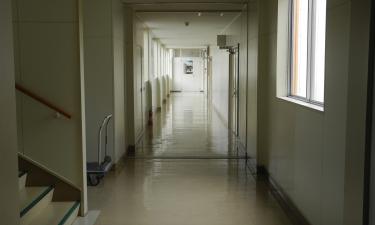EurAsEc summit in Astana to focus on customs and tariff policies
The Eurasian Economic Community (EurAsEC) summit in Astana will focus on coordination of customs and tariff policies and positions at the talks with the World Trade Organization (WTO). Russian President Vladimir Putin will take part in the summit on June 18.
The heads of state are to consider 19 issues, including EurAsEC common railway tariffs and coordinated positions at the WTO accession talks, Russian President's aide Sergei Prikhodko told RIA Novosti.
"This is highly important. We need a common position on the conditions of access to our services markets," the Kremlin representative said.
According to Mr. Prikhodko, the summiteers are to discuss the implementation of the EurAsEC border policy bases, a draft agreement on cooperation in the securities market, development of hydroelectric resources of the Syrdarya and Amudarya Rivers, migration policy, the use of labor resources and the common economic space formation.
Moreover, EurAsEC leaders are to consider the candidacies of the chairmen of the EurAsEC interstate council and integration committee. Nursultan Nazarbayev and Grigory Rapota are expected to retake these posts.
The Eurasian Economic Community is an international economic organization uniting the former member-states of the Customs Union (Russia, Belarus, Kazakhstan, Kyrgyzstan and Tajikistan).
Ukraine and Moldova were granted the status of EurAsEC observers in May 2002 and Armenia - in January 2003.
The Customs Union leaders signed the agreement on the EurAsEC establishment in Astana on October 10, 2000. The formation of its legal bases was accomplished by the end of 2001.
The EurAsEC establishment is the first step towards the creation of a more effective system of the five countries' economic cooperation on the principles similar to those of the former European Economic Community (today the European Union).
The agreement outlines purposes, tasks and bodies of the new international organization, the Eurasian Economic Community, the order of EurAsEC chairmanship and membership, the status of observers and legal capacity of its member-states.
The Eurasian Economic Community has an international status.
Its tasks are the following: the execution of the full-fledged free trade system, harmonization of customs tariffs and system of non-tariff measures, coordinated positions on interaction with the World Trade Organization and other international economic organizations, introduction of the unified order of currency regulation and control, coordinated economic reforms in the member-states and formation of the common payment system, creation of the common transport market and system, harmonization of national education systems, provision of economic security on the EurAsEC borders, the fight against smuggling and other customs violations, etc.
According to the agreement, EurAsEC preserves the structures of the former Customs Union, the interstate council, the integration committee and the inter-parliamentary assembly.
The EurAsEC headquarters are located in Moscow and Astana.
The supreme body of the Eurasian Economic Community is the interstate council including EurAsEC presidents and prime ministers. The interstate council gathers once a year at the level of heads of state and twice a year at the level of premiers.
The integration committee, the permanent governing body, comprises vice premiers involved in economic issues.
The sides' permanent representatives in the community and the integration committee's secretariat are involved in current activities.
The parliamentary cooperation body, the inter-parliamentary assembly, considers harmonization of national legislation.
The EurAsEC court provides overall implementation of EurAsEC internal agreements and decisions.
The voting right is directly proportional to the countries' shares in the Community's budget: Russia - 40%, Belarus and Kazakhstan - 20% each, Kyrgyzstan and Tajikistan - 10% each.
Russian is the working EurAsEC language.
The EurAsEC establishment agreement will last for an indefinite period. The Eurasian Economic Community is an open association granting the status of observers to the countries, which are not ready to join it fully.
On May 16, 2001 the Russian State Duma and Federation Council ratified the agreement on the EurAsEC establishment.
On February 21, 2003 EurAsEC member-states signed an agreement on border protection cooperation.
On May 8, 2003 the UN fixed the EurAsEC international status. According to article 102 of the UN Charter, the agreement on the EurAsEC establishment was registered in the UN Secretariat.
On December 9, 2003 the Eurasian Economic Community was granted the status of observer in the UN General Assembly.
Subscribe to Pravda.Ru Telegram channel, Facebook, RSS!




